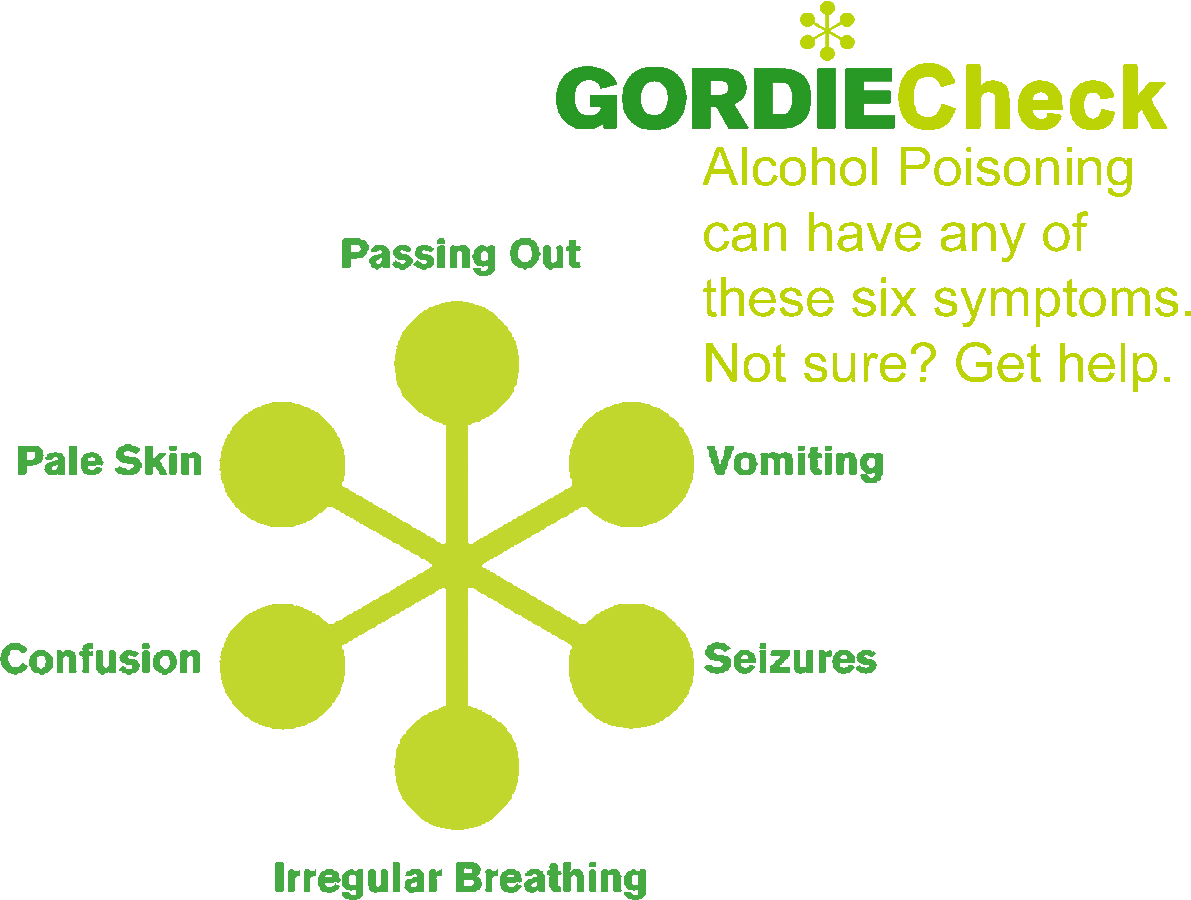Party Smart Sycamorrres
The information on this website is intended for adults of legal drinking age and is for informational purposes only. It does not constitute medical or legal advice and no such advice should be inferred. By providing this information, Indiana State University is not supporting, condoning or encouraging the consumption of alcoholic beverage in excess or any other form of alcohol use or abuse. Indiana State is not and will not be liable for any loss, injury or other damage that occurs as a result of the use of this website or reliance on its content.

Reasonably
To party reasonably means knowing what counts as a standard drink and your limits. In order to learn how alcohol affects you, it's important to understand what a standard drink is. See the image below to see what counts as one drink.

When you start drinking you usually feel great because of the initial release of dopamine in your brain. Dopamine is the reward chemical in your brain that makes you feel good about what you're doing. However, since alcohol is a depressant, as you continue to drink, it slow down brain activity which can lead to loss of judgment, reduced coordination and reaction time, and a decline in vision. The image below shows how the number of drinks effects your driving.

Responsibly
If you choose to drink, be responsible

Tips For Drinking Responsibly:
- Check Your Motives: Why are drinking? To get drunk? To reduce social anxiety?
- Pregame With Protein: Lean protein helps keep your body sugar steady so you'll have less spikes and crashes throughout the evening
- Avoid Stimulant Mixers: Stimulant mixers mask the effects of intoxication which can lead to consuming more alcohol.
- Stop If You Feel Drunk.
- Measure and pour our own drinks
- Alternate between alcoholic and non-alcoholic beverages.
- Pace Yourself. As a general rule, 1 alcoholic beverage per hour is safe
- Plan for how you are going to get to a party and back home safely, who will be designated driver or sober monitor, and how much you plan to drink that night.

Be An Upstander, Not a Bystander
If you see someone who has been drinking who appears to be asleep and can’t be woken up; has slow or irregular breathing; has cold, clammy, pale, or bluish lips or skin; and is vomiting while passed out, he or she probably has alcohol poisoning. That person is at risk of dying or having serious health issues, so it’s important to get help. Do not leave the person alone or let them “sleep it off.” Call 911 immediately.

- Indiana's Lifeline Law provides that a person is immune from arrest or prosecution for certain alcohol offenses if the arrest or prosecution is due to the person: (1) reporting a medical emergency; (2) being the victim of a sex offense; or (3) witnessing and reporting what the person believes to be a crime. Within the State of Indiana, the Lifeline Law provides immunity for the crimes of public intoxication, minor in possession, minor in consumption, and similar laws, to persons who identify themselves to law enforcement while seeking medical assistance for a person suffering from an alcohol-related health emergency.
- Indiana State University Medical Amnesty Policy provides that a student who seeks for another and the student in need of medical assistance may be exempt from a University conduct process on the following conditions: 1) the student cooperates and provides detailed information regarding the incident and 2) the student successfully completes an alcohol education/ awareness program
Respectfully
Do not pressure people to drink, for any reason.
Drinking alcohol is a personal choice and isn't always as simple as someone not liking it.
If someone chooses not to drink alcohol that should be respected. Their reason's for not drinking are none of your business.
Navigating Consent While Under The Influence
If someone has consumed alcohol, you cannot make assumptions about their capacity to give consent. In order to give consent, someone must be free, knowing and aware of the sexual act(s). Alcohol reduces your awareness and ability to understand the situation. A potential partner also must be able to cooperate, which is not possible if they are physically incapacitated due to alcohol consumption. That means a “yes” under the influence may be invalid and any sexual conduct that you initiate could be sexual assault.
There can be a thin line between being tipsy but still coherent, and being intoxicated to the point where your or your partner’s reasoning is sufficiently impaired. The amount of substance one has consumed is not a reliable indicator of how intoxicated one is, as everyone has different levels of tolerance. There are also many other factors that can intensify the effects of a substance, such as interaction with other drugs, sleep deprivation and having an empty stomach.
If you are under the influence of alcohol or other substances, you are still responsible for obtaining consent for any sexual activity you initiate. If your potential partner has been using a substance(s), you need to make sure they are not incapacitated. Signs of incapacitation include:
- Slurred or incoherent speech
- Being unconscious
- Confusion
- Falling asleep
- Loss of balance
- Vomiting
- Behaving more impulsively
If they are incapacitated: STOP
If they are not incapacitated: ask them once if they are interested in a particular sexual activity.

